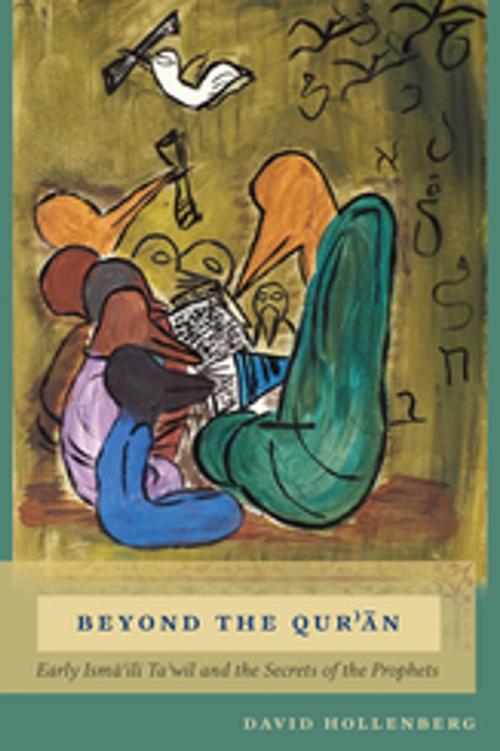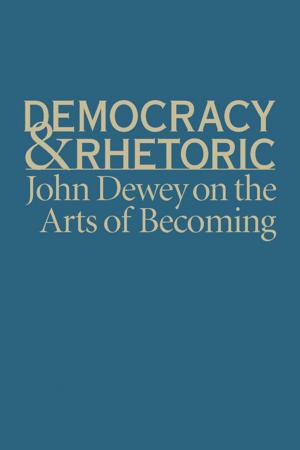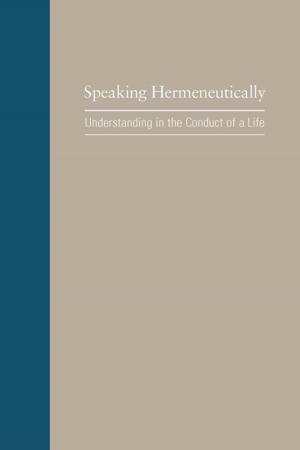Beyond the Qurʾān
Early Ismāʿῑlῑ Taʾwῑl and the Secrets of the Prophets
Nonfiction, Religion & Spirituality, Middle East Religions, Islam| Author: | David Hollenberg | ISBN: | 9781611176797 |
| Publisher: | University of South Carolina Press | Publication: | October 20, 2016 |
| Imprint: | University of South Carolina Press | Language: | English |
| Author: | David Hollenberg |
| ISBN: | 9781611176797 |
| Publisher: | University of South Carolina Press |
| Publication: | October 20, 2016 |
| Imprint: | University of South Carolina Press |
| Language: | English |
Ismailism, one of the three major branches of Shiism, is best known for taʾwῑl, an esoteric, allegorizing scriptural exegesis. Beyond the Qurʾān: Early Ismaili taʾwῑl and the Secrets of the Prophets is the first book-length study of this interpretive genre. Analyzing sources composed by tenth-century Ismaili missionaries in light of social-science theories of cognition and sectarianism, David Hollenberg argues that the missionaries used taʾwῑl to instill in acolytes a set of symbolic patterns, forms, and “logics.” This shared symbolic world bound the community together as it created a gulf between community members and those outside the movement. Hollenberg thus situates ta’wil socially, as an interpretive practice that sustained a community of believers. An important aspect of taʾwῑl is its unconventional objects of interpretation. Ismaili missionaries mixed Qurʾānic exegesis with interpretation of Torah, Gospels, Greek philosophy, and symbols such as the Christian Cross and Eucharist, as well as Jewish festivals. Previously scholars have speculated that this extra- Qurʾānic taʾwῑl was intended to convert Jews and Christians to Ismailism. Hollenberg, departing from this view, argues that such interpretations were, like Ismaili interpretations of the Qurʾān, intended for an Ismaili audience, many of whom converted to the movement from other branches of Shiism. Hollenberg argues that through exegesis of these unconventional sources, the missionaries demonstrated that their imam alone could strip the external husk from all manner of sources and show the initiates reality in its pure, unmediated form, an imaginal world to which they alone had access. They also fulfilled the promise that their imam would teach them the secrets behind all religions, a sign that the initial stage of the end of days had commenced. Beyond the Qurʾān contributes to our understanding of early Ismaili doctrine, Fatimid rhetoric, and, more broadly, the use of esoteric literatures in the history of religion.
Ismailism, one of the three major branches of Shiism, is best known for taʾwῑl, an esoteric, allegorizing scriptural exegesis. Beyond the Qurʾān: Early Ismaili taʾwῑl and the Secrets of the Prophets is the first book-length study of this interpretive genre. Analyzing sources composed by tenth-century Ismaili missionaries in light of social-science theories of cognition and sectarianism, David Hollenberg argues that the missionaries used taʾwῑl to instill in acolytes a set of symbolic patterns, forms, and “logics.” This shared symbolic world bound the community together as it created a gulf between community members and those outside the movement. Hollenberg thus situates ta’wil socially, as an interpretive practice that sustained a community of believers. An important aspect of taʾwῑl is its unconventional objects of interpretation. Ismaili missionaries mixed Qurʾānic exegesis with interpretation of Torah, Gospels, Greek philosophy, and symbols such as the Christian Cross and Eucharist, as well as Jewish festivals. Previously scholars have speculated that this extra- Qurʾānic taʾwῑl was intended to convert Jews and Christians to Ismailism. Hollenberg, departing from this view, argues that such interpretations were, like Ismaili interpretations of the Qurʾān, intended for an Ismaili audience, many of whom converted to the movement from other branches of Shiism. Hollenberg argues that through exegesis of these unconventional sources, the missionaries demonstrated that their imam alone could strip the external husk from all manner of sources and show the initiates reality in its pure, unmediated form, an imaginal world to which they alone had access. They also fulfilled the promise that their imam would teach them the secrets behind all religions, a sign that the initial stage of the end of days had commenced. Beyond the Qurʾān contributes to our understanding of early Ismaili doctrine, Fatimid rhetoric, and, more broadly, the use of esoteric literatures in the history of religion.















